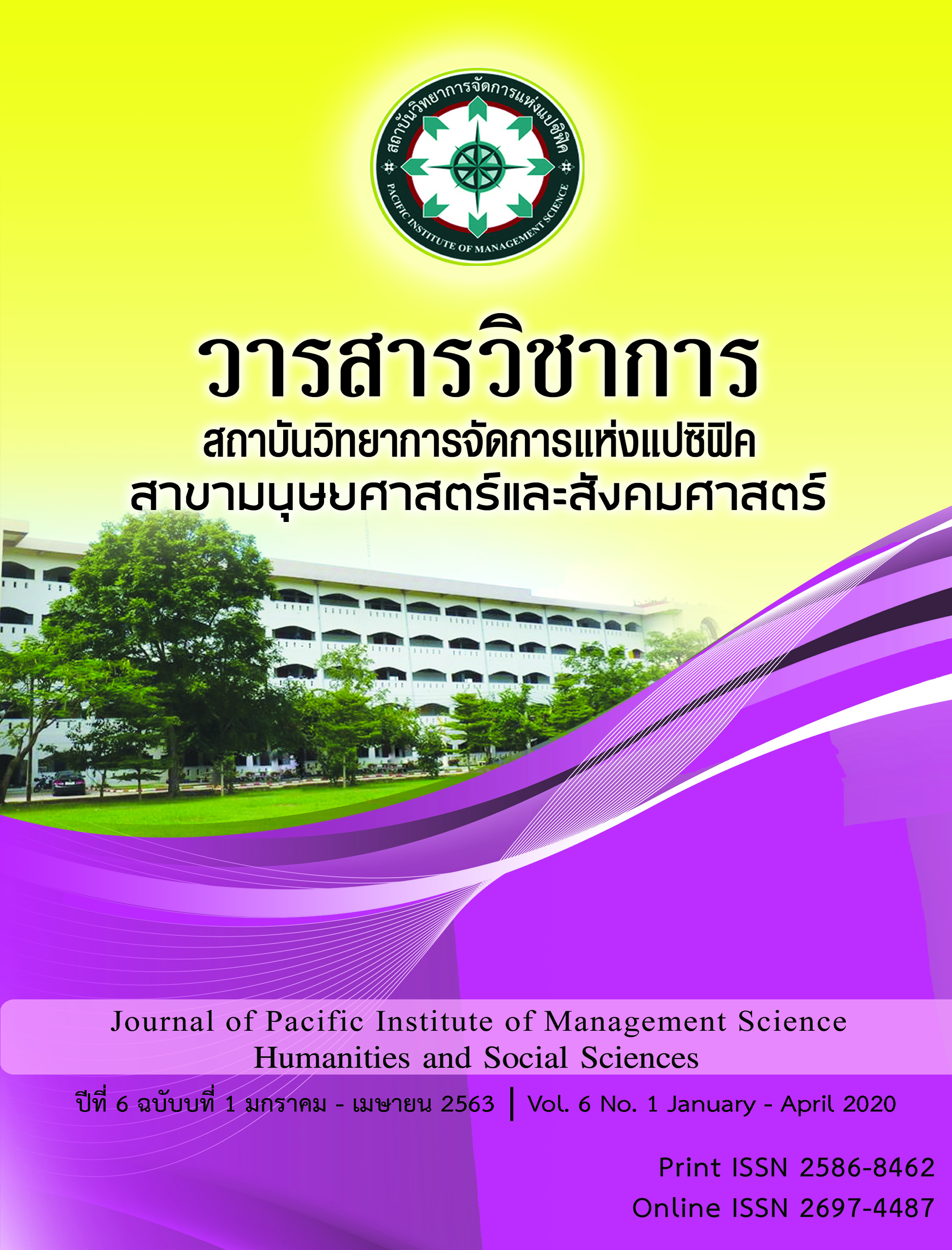DEVELOPMENT OF SUCCESS INDICATORS OF ADMINISTRATION FOR DUAL VOCATIONAL TRAINING IN EDUCATION INSTITUTES UNDER THE OFFICE VOCATIONAL EDUCATION COMMISION
Keywords:
Indicators, Dual Vocational Training, Vocational EducationAbstract
The purposes of this research were to (1) develop indicators for the success of bilateral vocational education system education in educational institutions Under the Office of the Vocational Education Commission (2) to verify the consistency of the bilateral vocational education system achievement indicator model in educational institutions Under the Office of Vocational Education Commission and empirical data By using mixed method methodology, conducting 3 stages of research: Phase 1, studying the indicator of success of bilateral vocational education system education in educational institutions Under the Office of the Vocational Education Commission by studying concepts Theories And interviewing 11 experts. Phase 2 establishes indicators for the success of bilateral vocational education system education in educational institutions. Under the Office of the Vocational Education Commission using questionnaires Administrators and professors In educational institutions under the Office of the Vocational Education Commission In the eastern region With 52 executives and 486 instructors, a total of 538 people selected by stratified random sampling. Data were analyzed using frequency, percentage, mean. Standard Deviation Correlation Coefficient Analysis and analysis of confirmed elements Phase 3 Assessment of the success indicators of bilateral vocational education system education in educational institutions Under the Office of the Vocational Education Commission by 8 experts Development of indicators for bilateral education vocational education system success in educational institutions Under the Office of the Vocational Education Commission. The results of this research were as follows:
- Identification factors for the success of bilateral vocational education system education in educational institutions Under the Office of the Vocational Education Commission, consisting of 6 factors: 1. teachers and personnel 2. learners 3. resources 4. curriculum and teaching management 5. influence of reference groups 6. organizations or institutions And sub-process components consisting of 1. Cooperation between educational institutions and establishments 2. Public relations and learners 3. Management of teaching and vocational training 4. In accordance with supervision and evaluation The factors related to the quality of the vocational education system in the bilateral system consist of 3 factors: 1. Quality of learners 2. Quality of education institutions 3. Quality of enterprises
- Identification of the success of bilateral vocational education system education in educational institutions Under the Office of the Vocational Education Commission, 8 indicators
- Model consistency Found that the indicator of success in the management of vocational education in bilateral systems in educational institutions Under the Office of the Vocational Education Commission. Consistency with empirical data
References
นงลักษณ์ วิรัชชัย. (2551). การพัฒนาตัวบ่งชี้การประเมิน การประชุมวิชาการ เปิดขอบฟ้าคุณธรรมจริยธรรม.วันที่ 29 สิงหาคม 2551. โรงแรมแอมบาสเดอร์
เนตรนภา ไวทย์เลิศศักดิ์ ยาบุชิตะ. (2555). ประชมคมอาเซียนกับตลาดแรงงานและการบริหารทรัพยากรมนุษย์, วารสารบริหารธุรกิจ (ฉบับพิเศษครบรอบ 73 ปี ของการสถาปนาคณะฯ), มหาวิทยาลัยธรรมศาสตร์, มกราคม 2555. :140-154
ประภาพรรณ รักเลี้ยง. (2556). หลักทฤษฎีและการปฏิบัติการบริหารการศึกษา.บัณฑิตวิทยาลัย มหาวิทยาลัยพิษณุโลก.
มหาวิทยาลัยเทคโนโลยีพระจอมเกล้าพระนครเหนือ. (2559). ระเบียบการรับนักศึกษาใหม่. สืบค้นเมื่อวันที่ 30
กันยายน พ.ศ. 2559,.http://www.Admission.kmutnb.ac.th/rabiubkanrubtong 55- all.pdf
ศูนย์อาชีวศึกษาทวิภาคี. (2556). ผลการประชุมสถานศึกษาที่ไม่ผ่านการรับรองมาตรฐานคุณภาพของสถานศึกษา ประจำปี พ.ศ. 2554-2555. กรุงเทพฯ: สำนักงานคณะกรรมการการอาชีวศึกษา.
สำนักงานเลขาธิการสภาการศึกษา. (2550). การจัดการศึกษาระบบทวิภาคีหรือระบบฝึกหัด กรณีศึกษาประเทศ สหพันธ์สาธารณรัฐเยอรมัน สหรัฐอเมริกา อังกฤษ และออสเตรเลีย. กรุงเทพฯ: กระทรวงศึกษาธิการ.
Downloads
Published
Issue
Section
License
บทความที่ได้รับการตีพิมพ์เป็นลิขสิทธิ์ของ สถาบันวิทยาการจัดการแห่งแปซิฟิค
ข้อความที่ปรากฏในบทความแต่ละเรื่องในวารสารวิชาการเล่มนี้เป็นความคิดเห็นส่วนตัวของผู้เขียนแต่ละท่านไม่เกี่ยวข้องกับสถาบันวิทยาการจัดการแห่งแปซิฟิค และคณาจารย์ท่านอื่นๆในสถาบันฯ แต่อย่างใด ความรับผิดชอบองค์ประกอบทั้งหมดของบทความแต่ละเรื่องเป็นของผู้เขียนแต่ละท่าน หากมีความผิดพลาดใดๆ ผู้เขียนแต่ละท่านจะรับผิดชอบบทความของตนเองแต่ผู้เดียว







